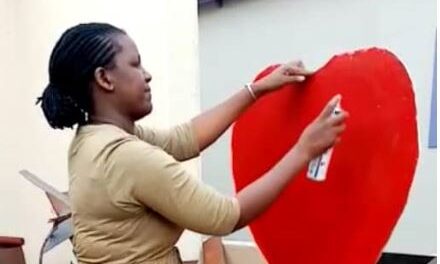
Fascination with Failure

By Natasja Beyleveld, Managing Director of NaMedia media monitoring company.
Failure is not a competitive sport. It’s a maths problem with multiple answers. It is fuel without a price cap; one of the photos in the album; the ‘oops’ in every other relationship; or one of the ticks on the clock.
There is depth to the saying; “what you allow, you encourage”. There are long-term fails like procrastination or short-term fails like missing the bus, deadline, or date. Some failures cause regret, seldom becoming a great relief or understanding. Others are seen as bad advice that’s intended only to soothe us in our shortcomings, or our own lack of will to confront failure.
It is the easiest way to question yourself, your intent, courage, and ability to move on and try again. And it’s not about failure, it’s about reaching out again with tentacles of exploration. If vulnerability (according to Brenè Brown) is the most accurate measure of courage, is failure not supposed to be the motive for courage in action? Does it provoke authenticity in our shared imperfections and teach us more about empathy? Are we asked to change the game Poker to a game of Uno, where the cards are shared?
Does failure mean that you are losing, or that you are becoming the gladiator for the next opportunity? Instinct can direct us to cower or to direct our sense of responsibility to the next win. It demands understanding and discipline. Individuals in leadership positions often project their fear of failure onto the youth in the form of incentives, school marks, studies, hobbies and skills, reasoning, and participation – without much introspection unless probed. Perhaps incentivizing against failure has become part of the cause of depression, and self-rejection, The discipline you need to move on from failure could be the most valued lesson for life. In which ways does it reconnect the dots to people, places, purpose, and direction?
The World Health Organisation states that; “Factors that can contribute to stress during adolescence include exposure to adversity, pressure to conform with peers [read conformity, not failure], and exploration of identity. Risk-taking behaviours can be an unhelpful strategy to cope with emotional difficulties and can severely impact an adolescent’s mental and physical well-being. Media influence and gender norms can exacerbate the disparity between an adolescent’s lived reality and their perceptions or aspirations for the future. Other important determinants include the quality of their home life and relationships with peers. Violence (especially sexual violence and bullying), harsh parenting, and severe socioeconomic problems are recognized risks to mental health. Perpetration of violence is a risk-taking behaviour that can increase the likelihood of low educational attainment, injury, involvement with crime or death.”
Often, we see disconnection with failure, apathy rather. The failure of the woman or man on the street to get schooling, or a job. The human instinct is to push forward and run away from the tsunami of failures but are we leaving the injured behind? In politics, we get second, fifth, and 16 chances to try again, or to shift around into another position. In business, the tolerance for failure is less, and the connection between stakeholders is of utter importance, maintenance, and communication. To connect to failure demands responsibility to deal with the repercussions. In the digital age of instant gratification, we are encouraged to ‘patch forward’ and then ‘deal later’. Almost like a promise that in this age, we ‘do not have to deal with failure anymore’, and that there will be another way ‘around it’.
The Paris Wheel of disappointment and failure does not let you off until you learn to embrace the ride, regardless of having fright of heights or any prejudices or issues with those around you. Once you accept your own failures, your level of empathy and compassion, vulnerability, and authenticity increases. The pedestal will remove itself if you do not, and the wind will push you off the cliff if you do not jump. Survival instinct will teach you how to swim if you have not learned, and behaviour mimicked from those you admire will coach you into the next phase. We are all learning, after all?
Failure is shared, owned, named, and draws attention to ‘how’ and ‘why’. But first, start with taking in that feeling of disappointment, regret, self-blame, and fill those voids with ownership and new directorship. Let’s be kind along the way.
Love, Natasja













































